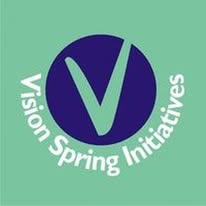In pursuing gender equality and women’s rights, women activists in Nigeria have long been at the forefront of driving positive change and advocating for a more inclusive society. However, in recent years, the shrinking civic space in Nigeria has presented significant challenges to their work, hindering progress toward achieving gender equality. As women’s voices face increasing threats, it becomes imperative to explore the roles of religion, guardianship, and the gender agenda in navigating this complex landscape. Vision Spring Initiatives stands committed to addressing these challenges and proposes recommendations to safeguard women’s rights in Nigeria.
Understanding Shrinking Civic Space
Shrinking civic space refers to the diminishing scope for individuals and civil society organizations to freely engage in advocacy, express opinions, and participate in public discourse without fear of reprisal. In Nigeria, the civic space has been narrowing, as women’s rights activists encounter barriers in their efforts to advance gender equality. The stifling of dissent, harassment, and the tightening of regulations have created an atmosphere of fear and intimidation, making it difficult for women activists to operate freely.
The Role of Religion
Religion plays a significant role in shaping cultural norms and societal attitudes in Nigeria. While faith can be a source of empowerment and support for women, it can also be manipulated to reinforce patriarchal structures. Misinterpretations of religious texts have been used to justify discrimination and violence against women, inhibiting their participation in public life and advocacy for their rights. Navigating the intersections of faith and feminism becomes critical in challenging harmful gender norms and fostering an environment that upholds women’s dignity and equality.
Guardianship and Gender Agenda
In many Nigerian communities, patriarchal values perpetuate the notion of guardianship, wherein women’s autonomy is curtailed, and their voices are often silenced. Guardianship systems can hinder women’s access to education, healthcare, and decision-making processes, limiting their agency and participation in civic spaces. Addressing this challenge requires concerted efforts to empower women economically, socially, and politically, ensuring they can fully engage in advocating for gender equality.
Recommendations by Vision Spring Initiatives
- Promote Gender-Sensitive Religious Dialogue: Facilitate interfaith dialogues that promote gender equality and challenge harmful interpretations of religious texts. Engage religious leaders as champions for women’s rights, fostering an environment of tolerance and inclusivity.
- Advocate for Gender-Responsive Legislation: Collaborate with policymakers to develop and implement legislation that safeguards women’s rights and addresses gender-based discrimination. Ensure existing laws are enforced to protect women activists from harassment and intimidation.
- Invest in Women’s Leadership: Empower women to take on leadership roles in civil society organizations and public institutions. Encourage mentorship programs that cultivate a new generation of women leaders and advocate for gender equality.
- Raise Awareness and Sensitize Communities: Conduct awareness campaigns and sensitization programs to challenge gender stereotypes and promote gender equality. Engage communities to shift cultural norms that hinder women’s empowerment and participation in civic spaces.
- Build Networks and Alliances: Strengthen collaborations among women’s rights organizations, civil society, and human rights advocates to amplify their collective voices and advocate for an enabling environment for women activists.
- Monitor and Document Human Rights Violations: Establish mechanisms to monitor and document human rights violations against women activists. Use this data to advocate for accountability and demand justice for victims.
In navigating the shrinking civic space in Nigeria, women activists face challenges stemming from religious interpretations, guardianship systems, and patriarchal norms. However, Vision Spring Initiatives recognizes the resilience and determination of women advocates in Nigeria and stands in solidarity with their cause. By promoting gender-sensitive religious dialogue, empowering women leaders, and advocating for gender-responsive legislation, we can create an inclusive environment that upholds women’s rights and fosters progress towards gender equality. Together, we can overcome the barriers posed by shrinking civic space and build a more just and equal society for all.
Read More On God, Guardian, and the Gender Agenda by Dataphyte
